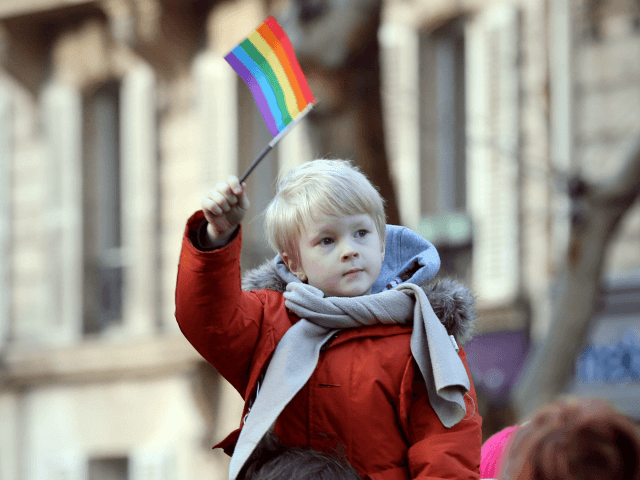A psychologist at an NHS clinic which specialises in children seeking to ‘transition’ their gender has warned that schools’ enthusiastic embrace of LGBT ideology risks harming pupils later in life.
Noting that a large proportion of children grow out of gender identity issues, Bernadette Wren said teachers are being too quick to treat pupils as the opposite gender on their say-so.
“If a school just gets a whisper of a child who may be querying their gender and within minutes they are doing everything to make sure that child is regarded as a member of the opposite sex right from the word go — that may not be the best for that child,” she told The Times.
Head of psychology at the Gender Identity Development Service (GIDS) clinic in London, where more than 2,000 children were referred last year, Wren said schools should speak to parents before going ahead and “changing things like names in the register, uniforms, pronouns, toilets, sports”.
I can feel society getting more civil by the moment. https://t.co/7oh0lHjA6U
— Breitbart News (@BreitbartNews) November 13, 2017
At the clinic, which has seen referrals rise 20 fold since 2009, almost half of older children go on to have medical “treatment” for gender identity issues, the psychologist said, disclosing the youngest to be an 11-year-old girl who received hormone treatment to suppress early puberty.
Only a quarter of children referred to the clinic aged between five and 12 opt for medical treatment such as cross-sex hormones to develop characteristics of the opposite sex.
“In the younger age group we may get kids who are gender fluid but not going to pursue this into later life. That is why we are a little more cautious about early social gender identity,” she said.
The GIDS clinic, which is part of the Tavistock and Portland NHS trust, is considered a pioneer in medical treatment for “transgender” children, but there is no follow-up data on what happens to its young patients in adulthood.
With no long-term research data for a number of the new treatments on offer, Ward said there are “really difficult choices” to make, admitting some youths will regret choosing to “transition”, and pointing to physical risks such as infertility.
“You could be the most transgender-friendly service in the world and you would still have to consider some very, very grave issues. The timing of puberty suspension, for instance. Whether they can tolerate enough treatment to develop the lower part of the body so they develop physical sensations.
“And fertility. They can consider the loss of their ability to have genetic children. This is becoming a big issue for us. For natal males — their capacity to produce sperm is more fragile in the face of these treatments.”
Sex ed for toddlers https://t.co/Xx9GnnOAho
— Breitbart London (@BreitbartLondon) April 18, 2017
The psychologist’s comments echoed those of IVF pioneer Lord Robert Winston, who sent a similar message of caution late last year when he said the long-term effects of taking hormones “are likely to affect reproductive function”.
Speaking on BBC Radio 4’s Today programme, the professor of science and society and emeritus professor of fertility studies at Imperial College London described the outcome of gender reassignment surgery as “horrendous in a big proportion of cases”, noting that almost a quarter of people who had their breasts removed “feel uncomfortable with what they’ve done”.
Citing his work at fertility clinics, the TV presenter said he had seen “very unhappy people who now feel quite badly damaged”.
Last month Breitbart London reported new government-approved guidelines which demand primary schools stock books and resources which “celebrate” transgender people.
The Gender Identity Research and Education Society (GIRES), an influential lobby group which has produced leaflets for the NHS, last year said schools should mark the transitioning of a transgender pupil with “celebratory” events such as a cake, to send an “upbeat” message about sex changes.

COMMENTS
Please let us know if you're having issues with commenting.